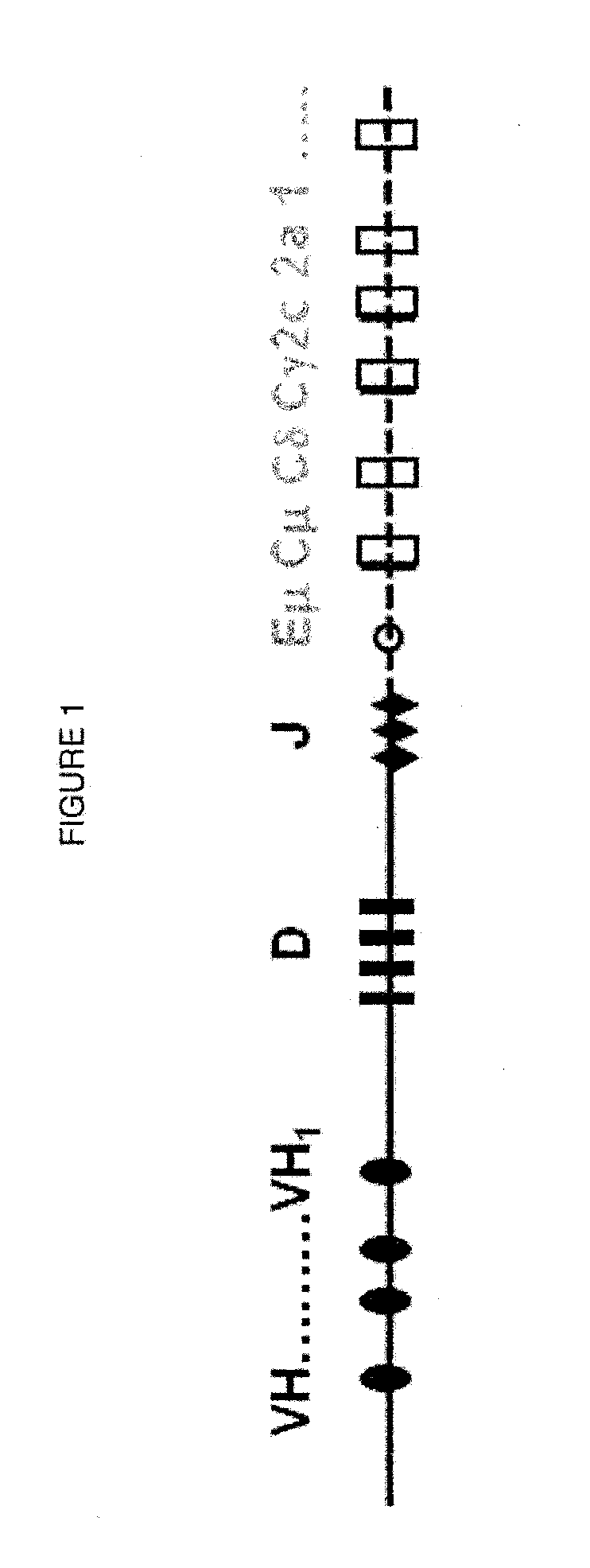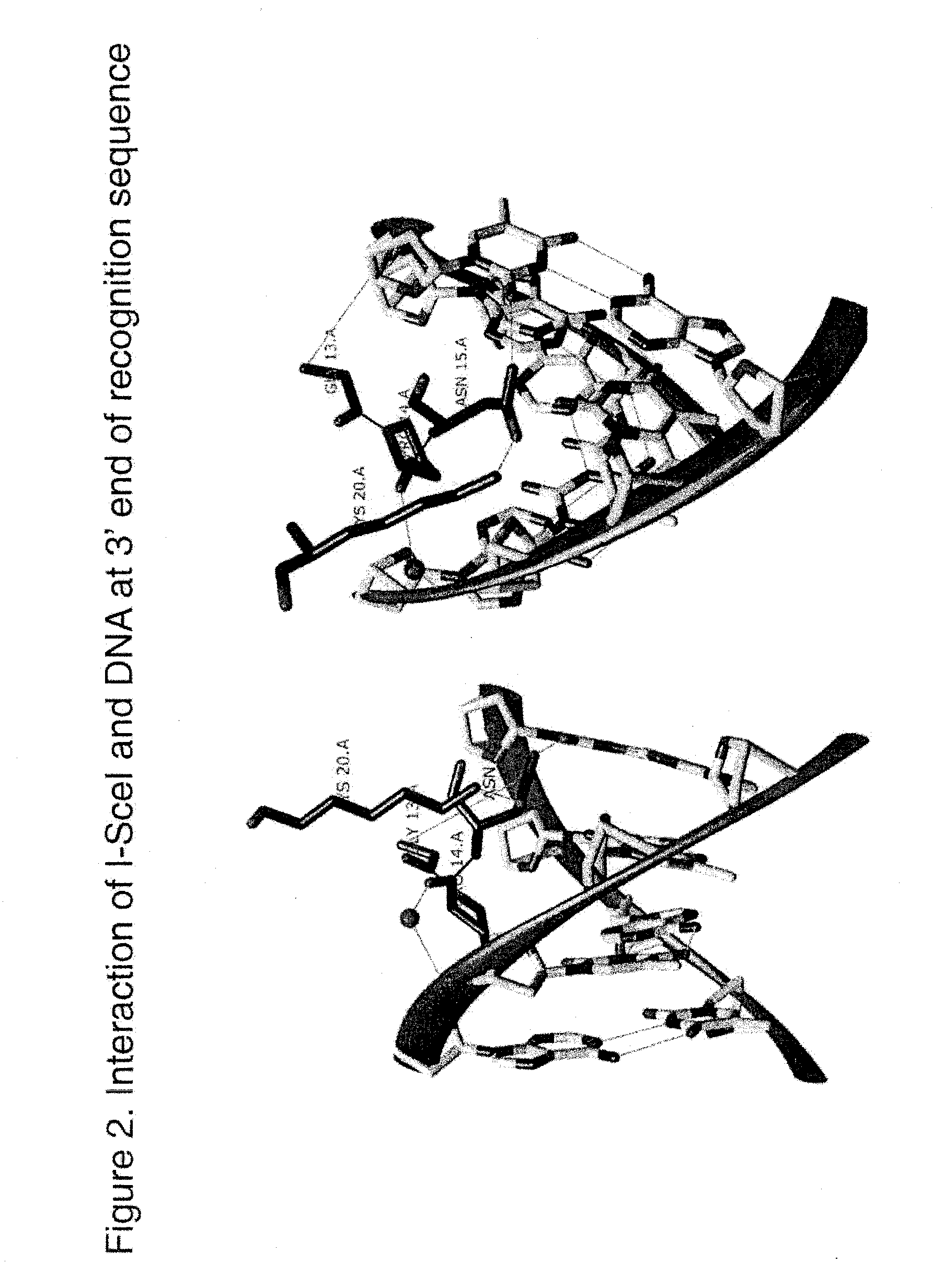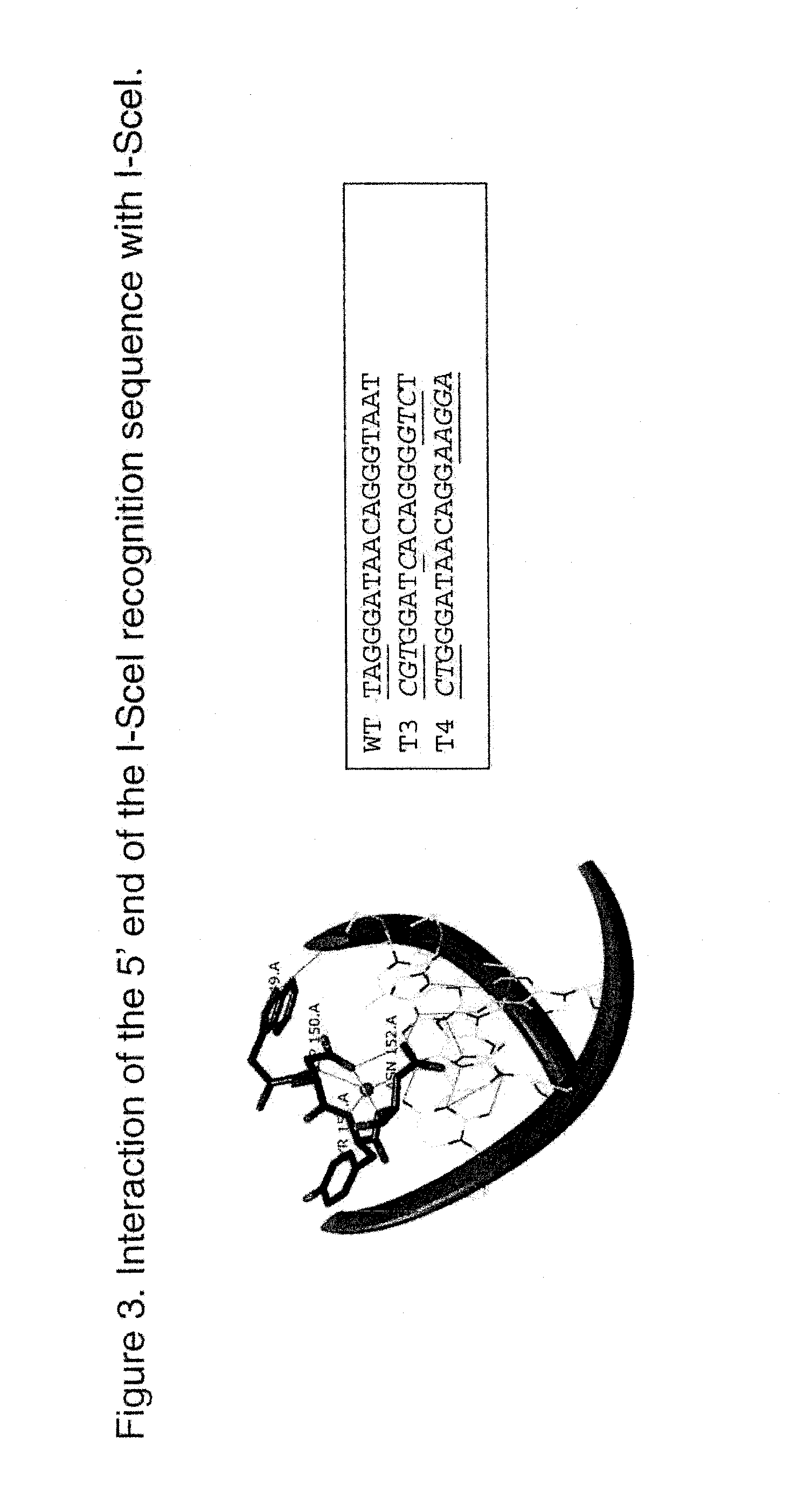Compositions and Methods for Inhibiting Endogenous Immunoglobulin Genes and Producing Transgenic Human Idiotype Antibodies
a technology of immunoglobulin and endogenous genes, which is applied in the direction of antibody medical ingredients, genetically modified cells, immunological disorders, etc., can solve the problem of preferential production or co-production of endogenous antibodies
- Summary
- Abstract
- Description
- Claims
- Application Information
AI Technical Summary
Benefits of technology
Problems solved by technology
Method used
Image
Examples
Embodiment Construction
[0120]By “artificial immunoglobulin locus” is meant an immunoglobulin locus comprising fragments of human and non-human immunoglobulin loci, including multiple immunoglobulin gene segments, which include at least one variable region (V) gene segment, one or more J gene segments, one or more D gene segments in the case of a heavy chain locus, and one or more constant region gene segments. In the present invention, at least one of the V gene segments encodes a germline or hypermutated human V-region amino acid sequence. In a preferred embodiment, an artificial immunoglobulin locus of the invention is functional and capable of rearrangement and producing a repertoire of immunoglobulins. In a preferred embodiment, at least one D gene segment is a human D gene segment. “Artificial Ig locus” as used herein can refer to unrearranged loci, partially rearranged loci, and rearranged loci. Artificial Ig loci include artificial Ig light chain loci and artificial Ig heavy chain loci. In one embo...
PUM
 Login to View More
Login to View More Abstract
Description
Claims
Application Information
 Login to View More
Login to View More - R&D
- Intellectual Property
- Life Sciences
- Materials
- Tech Scout
- Unparalleled Data Quality
- Higher Quality Content
- 60% Fewer Hallucinations
Browse by: Latest US Patents, China's latest patents, Technical Efficacy Thesaurus, Application Domain, Technology Topic, Popular Technical Reports.
© 2025 PatSnap. All rights reserved.Legal|Privacy policy|Modern Slavery Act Transparency Statement|Sitemap|About US| Contact US: help@patsnap.com



